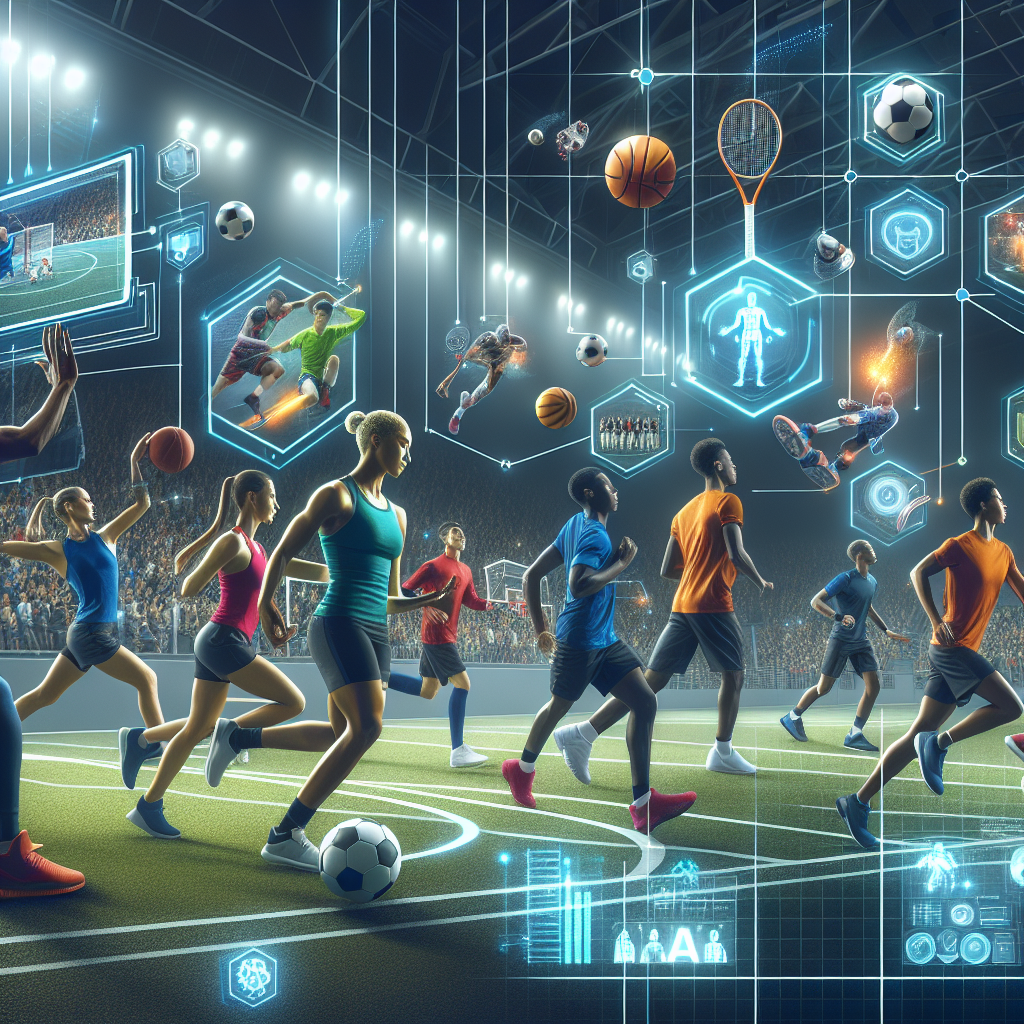Artificial Intelligence (AI) has been revolutionizing various industries in recent years, and sports is no exception. AI deployment in sports has the potential to enhance athletic performance, improve training techniques, and provide valuable insights for coaches and athletes. From wearable technology to data analysis, AI is changing the game for athletes and teams around the world.
One of the key areas where AI is making a significant impact in sports is in performance analysis. With the help of AI-powered tools, coaches and athletes can track and analyze performance metrics in real-time. This allows them to identify strengths and weaknesses, optimize training programs, and make data-driven decisions to improve performance. For example, AI can analyze video footage of a game or practice session to provide insights on player movements, positioning, and decision-making.
Wearable technology is another area where AI is making a big difference in sports. Athletes can now use smart devices to monitor their heart rate, speed, distance covered, and other key performance metrics. This data can be analyzed by AI algorithms to provide personalized coaching recommendations, track progress over time, and prevent injuries. For example, AI can detect patterns in an athlete’s movement that may indicate a risk of injury and provide recommendations to avoid potential problems.
In addition to performance analysis and wearable technology, AI is also being used in sports for scouting and recruitment. Teams can use AI algorithms to analyze player data from various sources such as video footage, statistics, and scouting reports. This allows teams to identify potential talent, make informed decisions on player transfers, and build stronger teams. AI can also help predict player performance and assess the impact of different strategies on team success.
Furthermore, AI is playing a role in sports broadcasting and fan engagement. With the help of AI, broadcasters can provide real-time analysis, statistics, and insights during live games. This enhances the viewing experience for fans and provides them with a deeper understanding of the game. AI can also generate personalized content for fans based on their preferences, helping to increase fan engagement and loyalty.
Despite the many benefits of AI deployment in sports, there are also some challenges and concerns. One of the main concerns is data privacy and security. With the increasing use of wearable technology and data analytics, there is a risk of sensitive information being compromised. It is important for teams, athletes, and technology providers to take appropriate measures to protect data and ensure compliance with regulations.
Another challenge is the potential for bias in AI algorithms. If the algorithms are not properly trained or tested, they may produce biased results that could have negative implications for athletes and teams. It is important for developers to address bias in AI algorithms and ensure that they are fair, transparent, and accountable.
In conclusion, AI deployment in sports is transforming the way athletes train, compete, and engage with fans. From performance analysis to scouting and recruitment, AI is revolutionizing the sports industry and helping athletes reach their full potential. As technology continues to evolve, we can expect to see even more innovations in sports with the help of AI.
FAQs:
Q: How is AI being used in sports?
A: AI is being used in sports for performance analysis, wearable technology, scouting and recruitment, broadcasting, and fan engagement.
Q: What are the benefits of AI deployment in sports?
A: The benefits of AI deployment in sports include enhanced athletic performance, improved training techniques, personalized coaching recommendations, injury prevention, data-driven decision-making, and increased fan engagement.
Q: What are some challenges of AI deployment in sports?
A: Some challenges of AI deployment in sports include data privacy and security concerns, potential bias in AI algorithms, and the need for proper training and testing of AI systems.
Q: How can teams and athletes protect their data in the era of AI deployment?
A: Teams and athletes can protect their data by implementing robust cybersecurity measures, ensuring compliance with regulations, and working with trusted technology providers.
Q: How can AI algorithms be made more fair and transparent in sports?
A: AI algorithms can be made more fair and transparent by addressing bias in the training data, testing the algorithms for fairness, and implementing measures for accountability and transparency.

